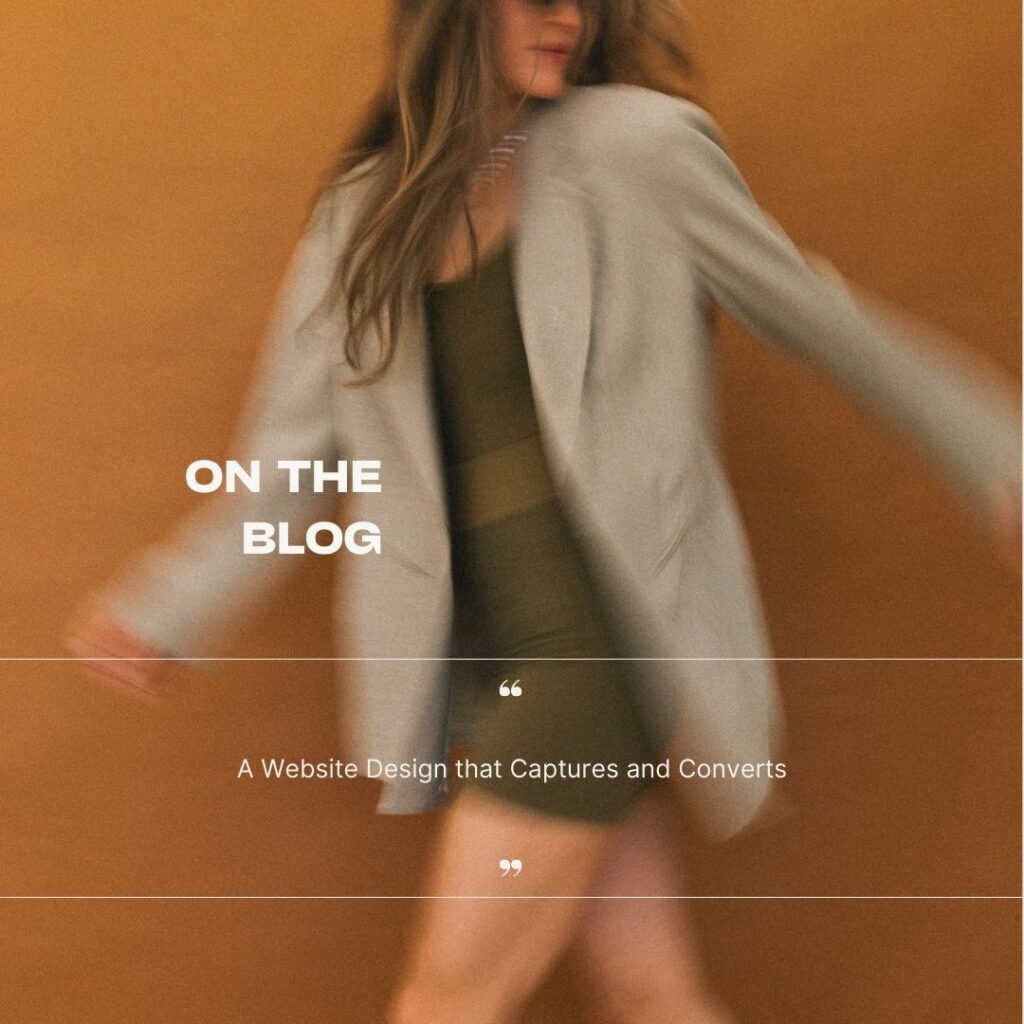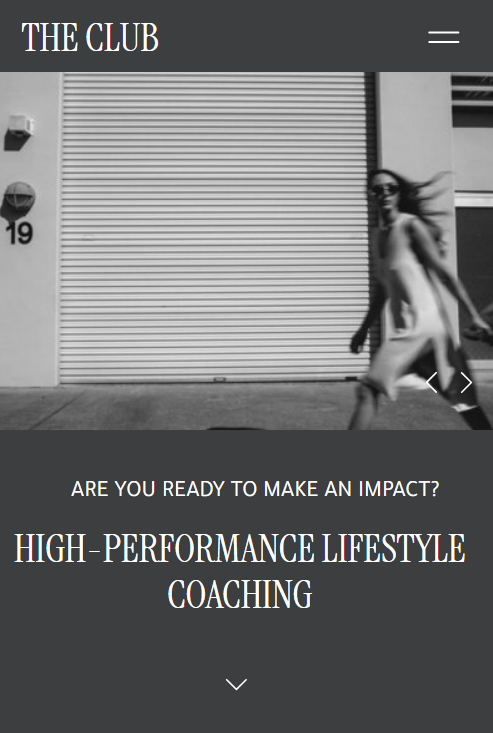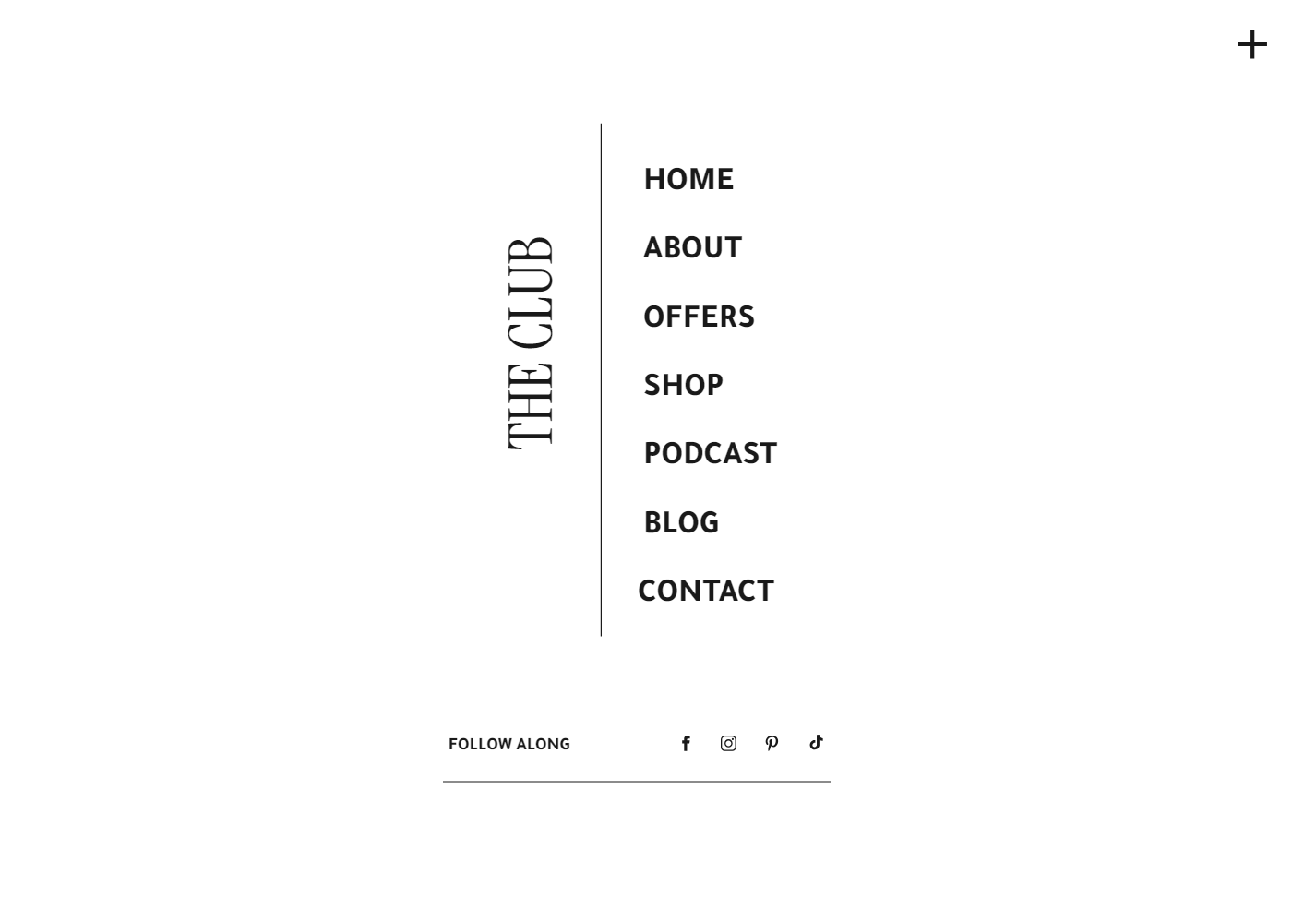When visitors land on your website, you have mere milliseconds to impress them. The stakes are high, and the competition is fierce. In today’s digital age, having a website that merely looks good isn’t enough; your website must be crafted to convert visitors into clients effectively. This will guide you through essential strategies to enhance your website’s design, ensuring it’s not just visually appealing but also conversion-optimized.
Let’s dive in!

The Importance of Speed
Speed is Eveything
In the digital world, speed can make or break your website. A slow-loading site tests the patience of your visitors, increasing the likelihood they’ll bounce before seeing what you have to offer. Websites that load in two seconds or less see a significantly lower bounce rate than those that don’t.
Quick tip: Optimize images and streamline your code to keep loading times down. Check out this article to Prepare your Images for Showit.
Streamline Your Site for Fast Performance
It’s not just about loading your home page quickly; every page on your site should load swiftly. Regularly check your site’s speed using tools like Google PageSpeed Insights and make adjustments as needed. Keep in mind, a faster site provides a smoother experience, keeping your visitors happy and engaged.
Mobile Optimization: A Necessity
Having a mobile, repsonsive design is crucial when designing. When using the Showit design platform, your website will automatically scale to size to look relatively good on any screensize. Showit offers flexible layouts, (see images below), that will stack your site’s canvas to be displayed clearly.
The Mobile-First Approach
With over half of all internet traffic coming from mobile devices, your website must perform flawlessly on smartphones and tablets. A mobile-optimized site helps in maintaining a lower bounce rate and higher engagement rates.
Ensure that your design is responsive, meaning it adjusts seamlessly to any screen size. Test your website across different devices to guarantee a uniform experience that will keep your users engaged, regardless of how they access your site.


Visual Appeal: More Than Meets the Eye
Harness the Power of Visuals
A visually appealing website doesn’t just attract attention; it makes a statement. Use colors and fonts that reflect your brand’s identity and resonate with your target audience. Each visual element should contribute to a cohesive look and feel that speaks volumes about your brand.
Keep It Simple and Effective
While it’s important to impress, avoid cluttering your website with excessive design elements. A clean, simple design often leads to better user experience and, consequently, more conversions. Remember, less is more when it comes to effective web design.


Engaging Content That Converts
Craft Content with Purpose
Every word on your website should serve a clear purpose. From your homepage to your contact page, compelling copy can influence visitors to take action. Be clear, concise, and persuasive; speak directly to your audience’s needs and how you can solve them.
Use Calls-to-Action Wisely
Guide your visitors through the buying journey with strategic calls-to-action. Whether you want them to learn more, see pricing, or contact you, your CTAs should be clear and compelling.
Trust and Credibility
Use Calls-to-Action Wisely
Social proof, such as testimonials and case studies, can significantly enhance trust in your brand. Showcasing real-life examples of satisfied customers reassures potential clients about the quality of your services or products.
Ensure your website has SSL certificates and other security measures in place. A secure site not only protects you and your visitors but also boosts your credibility.
Conversion Optimization Techniques
Beyond aesthetics, your website must be optimized for conversions. Analyze your user data to understand what works and what doesn’t, and test different elements (like colors, layout, and CTAs) to see what maximizes conversion rates.
Web design is not a set-it-and-forget-it part of your business. Continuously seek feedback and make adjustments to improve user experience and conversion rates.
Analytics and Improvement
Monitor and Adapt
Use Google Analytics and other tools to track how visitors interact with your site. Look at your bounce rate, time on site, and other metrics to identify areas for improvement.
Keep up with the latest web design trends and technologies. The digital landscape is always changing, and staying updated is key to keeping your website relevant and engaging.
Conclusion
Optimizing your Showit website is crucial for marketing your business. It’s not just about looking good; it’s about creating meaningful engagements and converting visitors into clients. By focusing on design, content, and user experience, you can transform your website into a powerful engine for business growth.
If you are looking for support with your website design, check out the details of our website design services HERE.
If this blog post inspires you, I would love to hear your thoughts. Join Kim on Instagram, @mayandjamesco.
Thanks for your support!